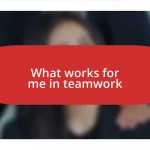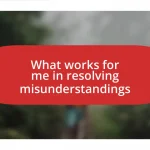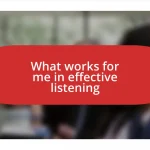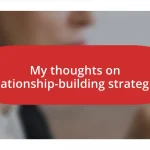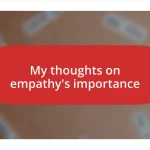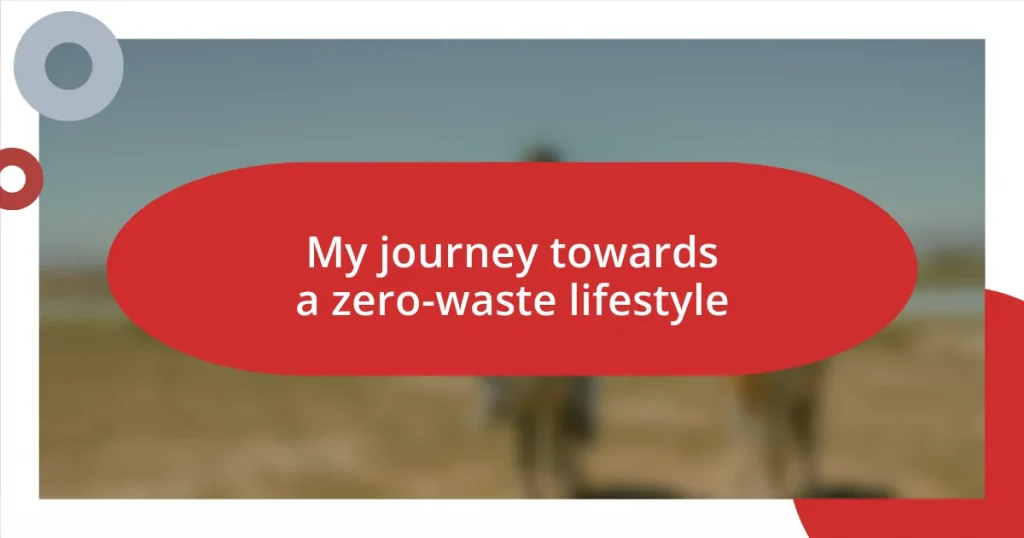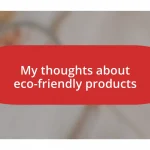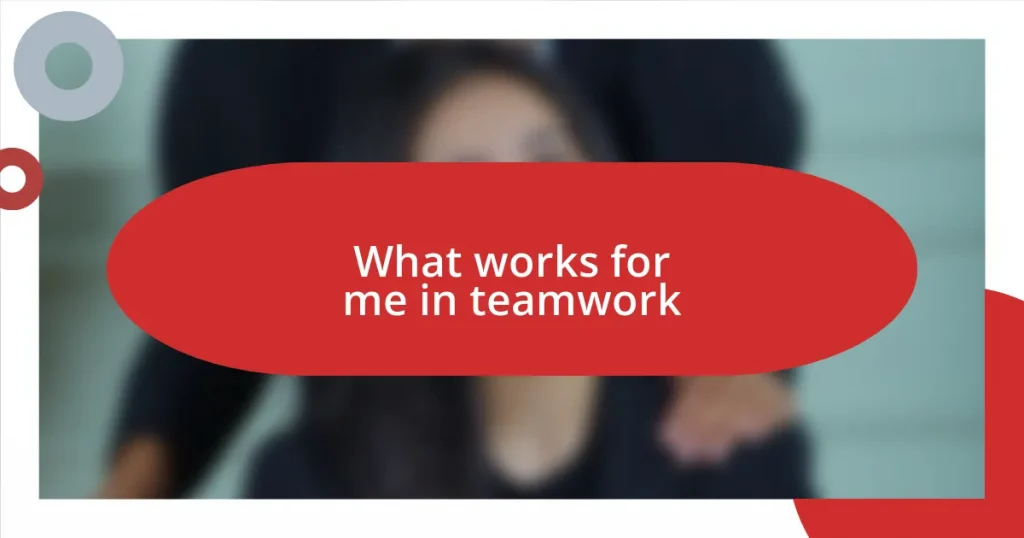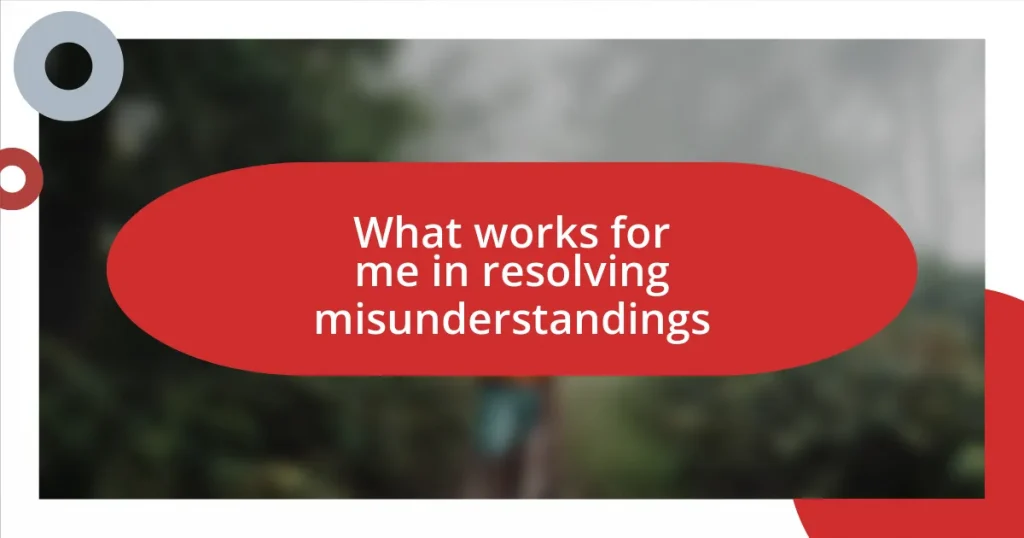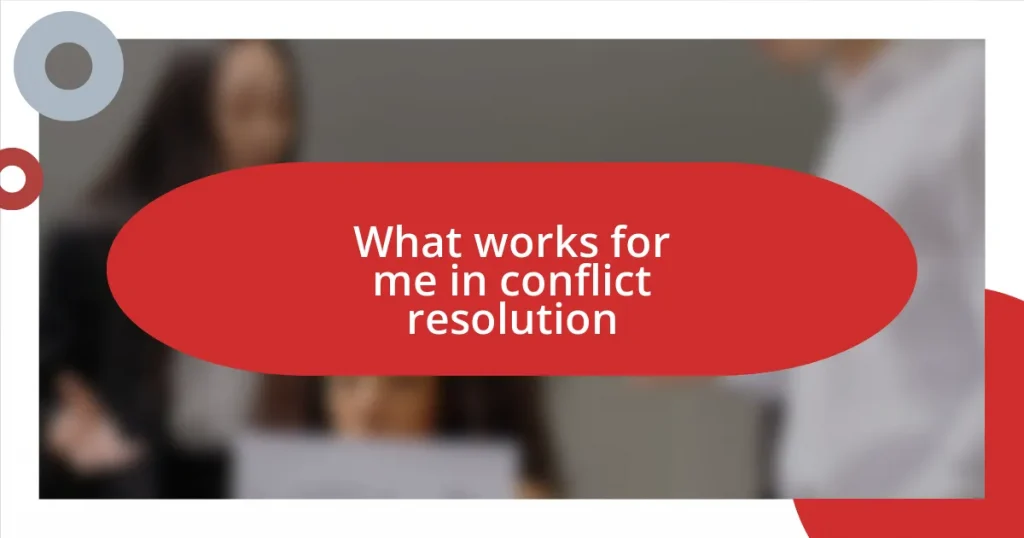Key takeaways:
- Embracing the “Five R’s” principle (Refuse, Reduce, Reuse, Recycle, Rot) is foundational for starting a zero-waste lifestyle.
- Conducting a personalized waste audit provides clarity on waste sources and helps prioritize reduction efforts.
- Developing sustainable shopping habits, such as supporting local markets and adopting a ‘buy what you need’ mentality, fosters a deeper connection to the environment.
- Engaging with the zero-waste community through meetups, online platforms, and volunteering enhances motivation and accountability in waste reduction efforts.
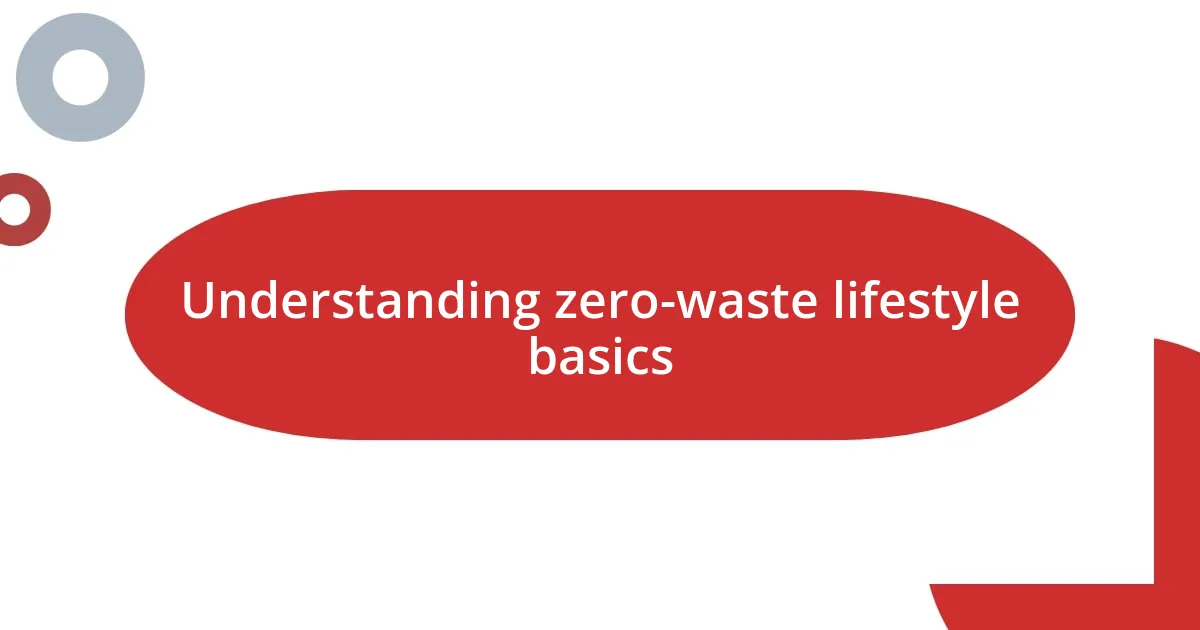
Understanding zero-waste lifestyle basics
At its core, a zero-waste lifestyle revolves around minimizing waste and embracing sustainability. Personally, I was amazed by how something as simple as reducing my plastic use made a profound difference in my daily routines. Have you ever paused to think about how many single-use items you touch in a single day?
One concept that really resonated with me is the “Five R’s” principle: Refuse, Reduce, Reuse, Recycle, and Rot. I vividly remember my first step—refusing plastic straws at a café. That moment was empowering, making me realize just how much control I have over my choices. It’s a journey that starts with small steps, which can feel daunting, but it’s incredibly rewarding.
I often find myself questioning my shopping habits. Why do we buy so much? Each time I consciously choose to buy second-hand or bring my own bags, I feel a sense of connection to my environment that’s hard to describe. Discovering alternatives to conventional products has been both enlightening and liberating, underscoring that a zero-waste lifestyle isn’t just about what we throw away; it’s about how we live and interact with the world around us.
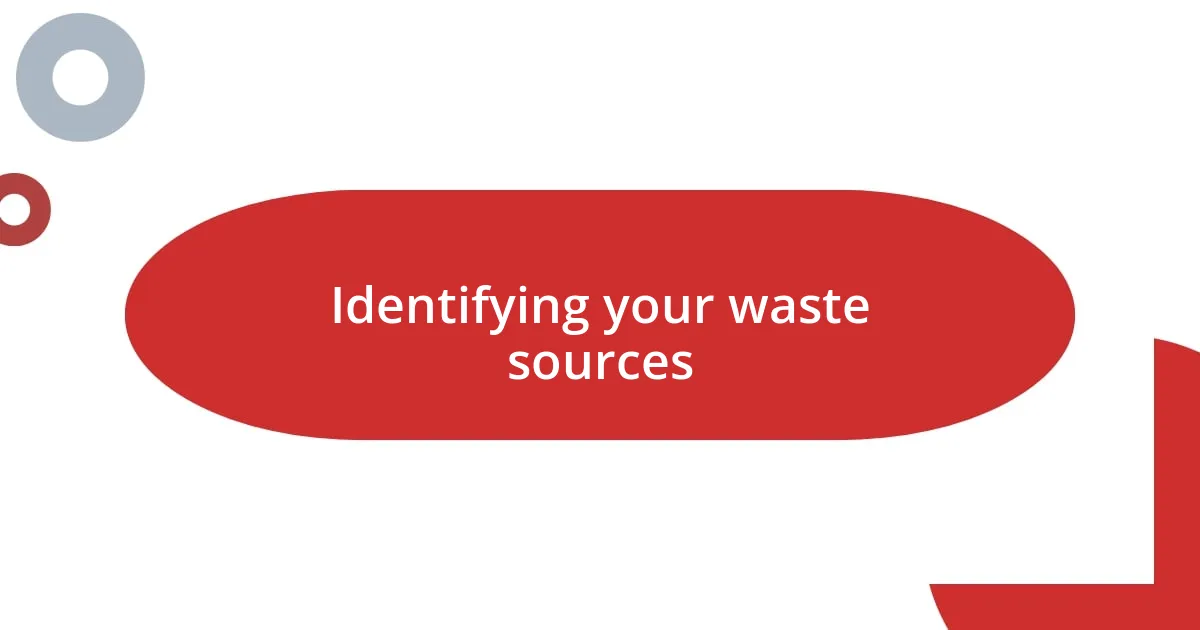
Identifying your waste sources
Identifying the sources of my waste was a revelation. I started by keeping a journal for a week, jotting down everything I discarded. It was eye-opening to see how my habits shaped my waste footprint. I realized that a significant portion came from food packaging, fast fashion, and disposable items.
Here are common sources of waste I discovered during my own journey:
- Food packaging: Takeout containers, plastic wrap, and snack bags contributed significantly to my waste.
- Single-use items: From coffee cups to plastic cutlery, they added up quickly.
- Fast fashion: The impulse buys from clothing stores led to a closet full of unworn garments.
- Bathroom products: Items like cotton swabs and bottles of shampoo were surprisingly wasteful.
- Cleaning supplies: Disposable wipes and single-use cleaning products cluttered my shelves.
By analyzing these sources, I felt more equipped to make thoughtful changes and reduce my overall waste. Each insight pushed me closer to embracing a more sustainable lifestyle.
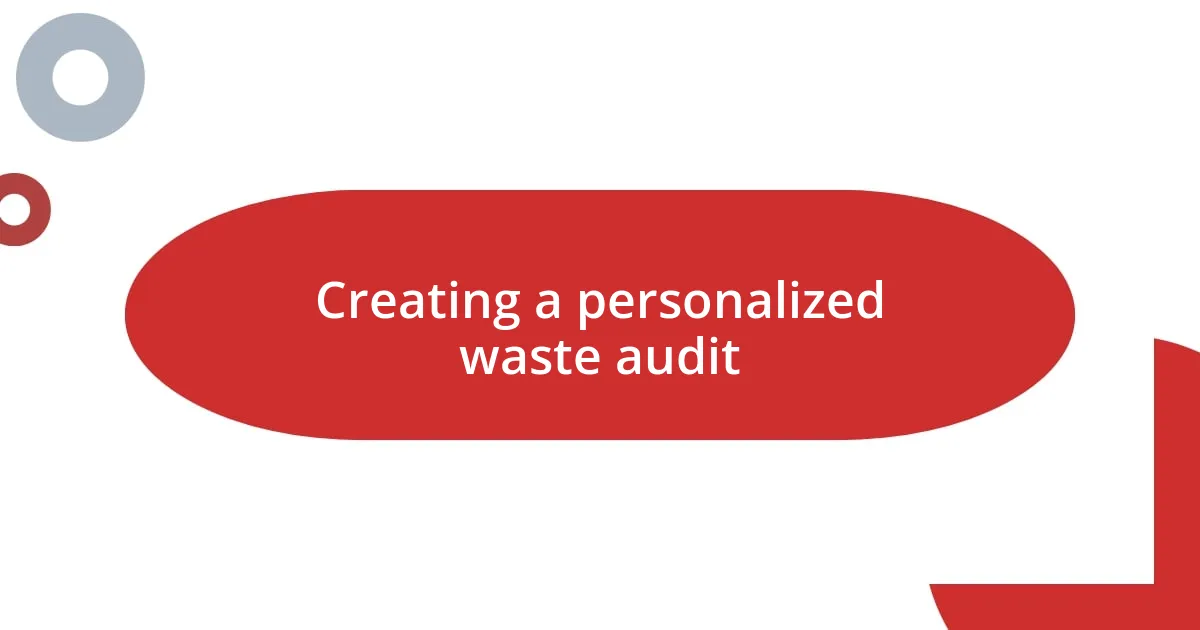
Creating a personalized waste audit
Creating a personalized waste audit is a game-changer in my journey toward a zero-waste lifestyle. I recall sitting down with a notebook and writing down what I tossed every day for a week. Initially, it felt tedious, but soon my list turned into a mirror reflecting my habits. It was shocking to see how many items I mindlessly threw away, especially the surprise revelation that most of my waste originated from food wrappers and personal care products. By quantifying my waste, I was able to pinpoint the areas needing immediate attention.
After completing my waste audit, I created a comparison table to visualize my findings better. This helped me identify patterns and prioritize actions. For instance, I discovered I frequently reached for single-use plastics at grocery stores, which led me to explore various alternatives. It’s exciting to see how one simple step, like switching to reusable produce bags, can carve out a path to change. The small victories gave me motivation, making it clear that every personal choice contributes to a larger impact.
Here’s a comparison of waste sources before and after conducting my audit:
| Waste Source | Before Audit |
|---|---|
| Food Packaging | 15 items/week |
| Single-use items | 10 items/week |
| Fast Fashion | 3 items/month |
| Bathroom Products | 8 items/week |
| Cleaning Supplies | 5 items/month |
By tracking my waste sources, I felt empowered to reduce my consumption drastically and adopt more sustainable practices. It’s certainly a journey, but documenting my progress adds a layer of accountability that keeps me motivated. Have you ever tried a waste audit? You might be surprised at what you uncover!
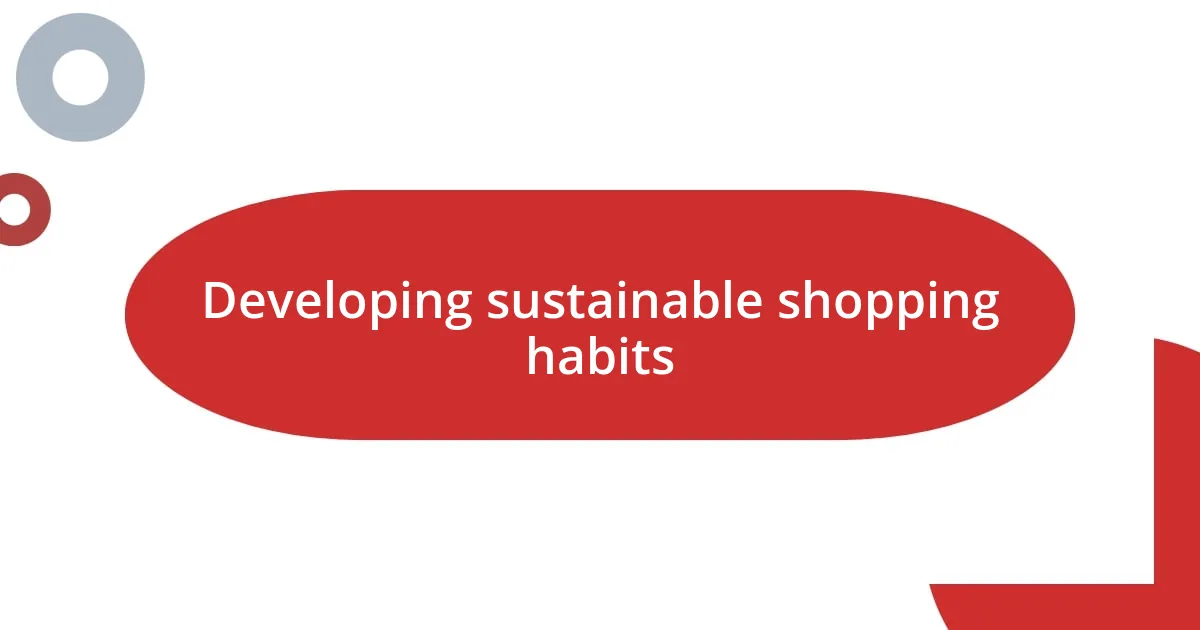
Developing sustainable shopping habits
Developing sustainable shopping habits has been a transformative aspect of my zero-waste journey. I still remember my first trip to the grocery store after committing to change. It felt overwhelming at first, trying to dodge plastic-wrapped produce and single-use items, but it quickly turned into a mindful scavenger hunt. I began bringing my own reusable bags and glass jars, which not only made me feel good about my choices but also encouraged others around me to start noticing their own habits. Have you ever thought about how your shopping choices impact the environment?
As I continued to refine my shopping approach, I discovered the joy of supporting local markets and producers. Building relationships with local farmers made my shopping experience feel more personal and meaningful. I vividly recall the day I chatted with a farmer about how he grows his vegetables without synthetic pesticides. It was refreshing to know exactly where my food was coming from, and that connection sparked a sense of responsibility toward supporting sustainable practices. By prioritizing local sources, I felt like I was not only reducing my waste but also contributing to my community’s livelihood.
Another significant shift was embracing a ‘buy what you need’ philosophy. Initially, that meant having a serious conversation with myself about my spending habits. I used to buy items on impulse, whether it was the latest gadget or an unnecessary kitchen gadget. Now, I regularly ask myself, “Do I truly need this?” This simple question has saved me from countless unnecessary purchases and reduced my waste. Each time I resist that impulse, I feel a sense of accomplishment. It’s not just about shopping; it’s about making thoughtful choices that align with my values. How powerful is it to realize that every choice counts?
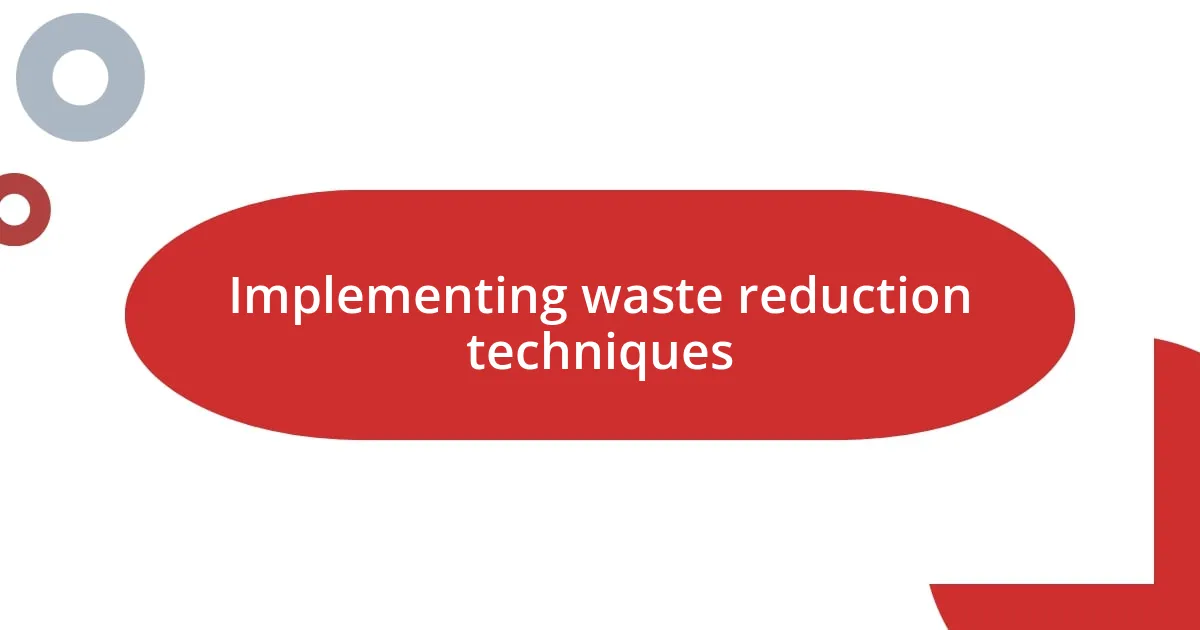
Implementing waste reduction techniques
Implementing waste reduction techniques can be an eye-opening experience. One of my favorite methods is the “one in, one out” rule. Whenever I bring a new item into my home, I ensure that I let go of something else. This technique not only curbs clutter but also encourages me to think deeply about my purchases. It’s fascinating to see how this simple habit has reshaped my relationship with belongings. Can you recall the last time you bought something you didn’t genuinely need?
I also turned my attention to food waste, which is where I found some of the biggest opportunities for reduction. I started meal prepping to ensure I use up ingredients before they spoil, which has not only minimized waste but saved me money too! The joy of finding clever ways to repurpose leftovers feels like a small victory each week. Do you ever find yourself tossing food that you forgot was in the fridge? I used to do that, but now I look forward to meal planning every Sunday.
Recycling is another technique that deserves attention, but it’s essential to do it right. I’ve learned that not all materials with recycling symbols are recyclable in my area. Engaging my community in a conversation about proper recycling methods has been incredibly beneficial. It’s surprising how much misinformation exists! Isn’t it energizing to know that by sharing what I’ve learned, I can inspire others to be more responsible too? Each step I take makes the collective effort feel even more powerful.
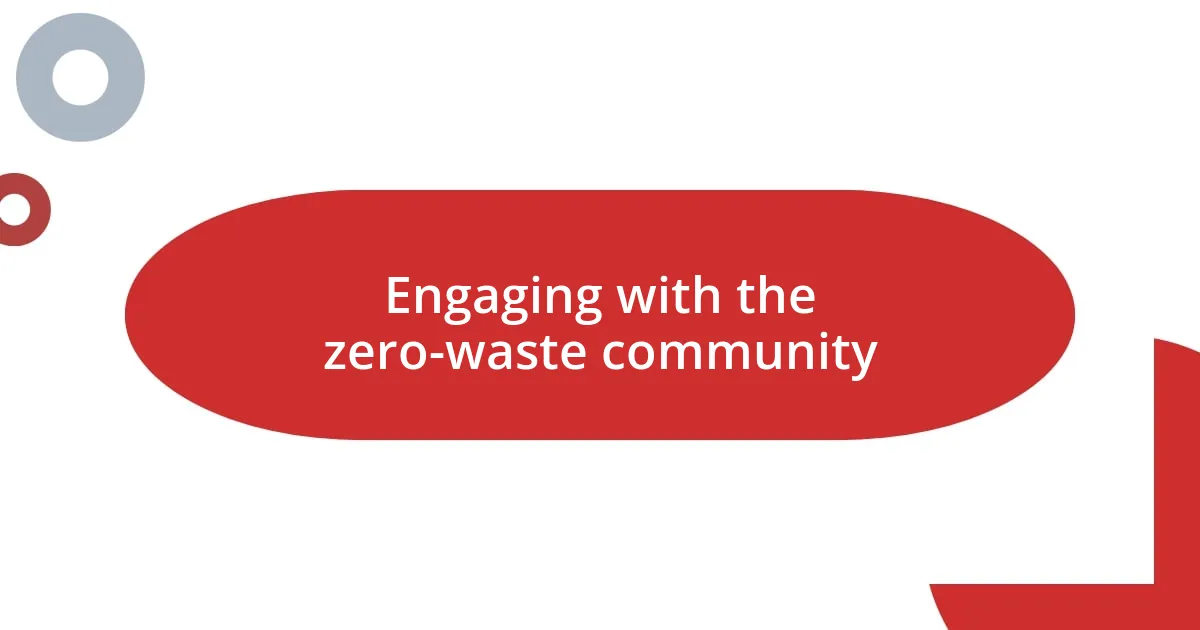
Engaging with the zero-waste community
Engaging with the zero-waste community has been one of the most fulfilling aspects of my journey. I vividly remember attending my first local zero-waste meetup. The energy in the room was contagious; people shared their successes and failures with such honesty. How refreshing is it to be in a space where everyone is on similar paths, striving towards a common goal? Those conversations not only validated my experiences but also opened my eyes to new ideas and resources.
Online platforms have also played a crucial role in connecting me with fellow zero-wasters. I started following several zero-waste influencers on social media, and their content often sparked engaging discussions. I find myself eagerly commenting on posts, sharing my experiences, and asking for advice. Have you ever experienced the power of a supportive online community? I can confidently say that the encouragement I receive from others fuels my commitment to this lifestyle, making me feel like I’m part of something greater than myself.
Volunteering for local clean-up events was another powerful way to deepen my engagement. I recall my first beach clean-up vividly; the sheer volume of trash we collected stunned me. It was disheartening, yet it also ignited a fire within me. The collective effort highlighted how interconnected we are in this fight against waste. It’s amazing how taking tangible action can boost our resolve. Wouldn’t you agree that seeing the impact of our collective efforts can inspire change in others too? The experiences I’ve shared have not only strengthened my commitment but also deepened my bonds within the community.
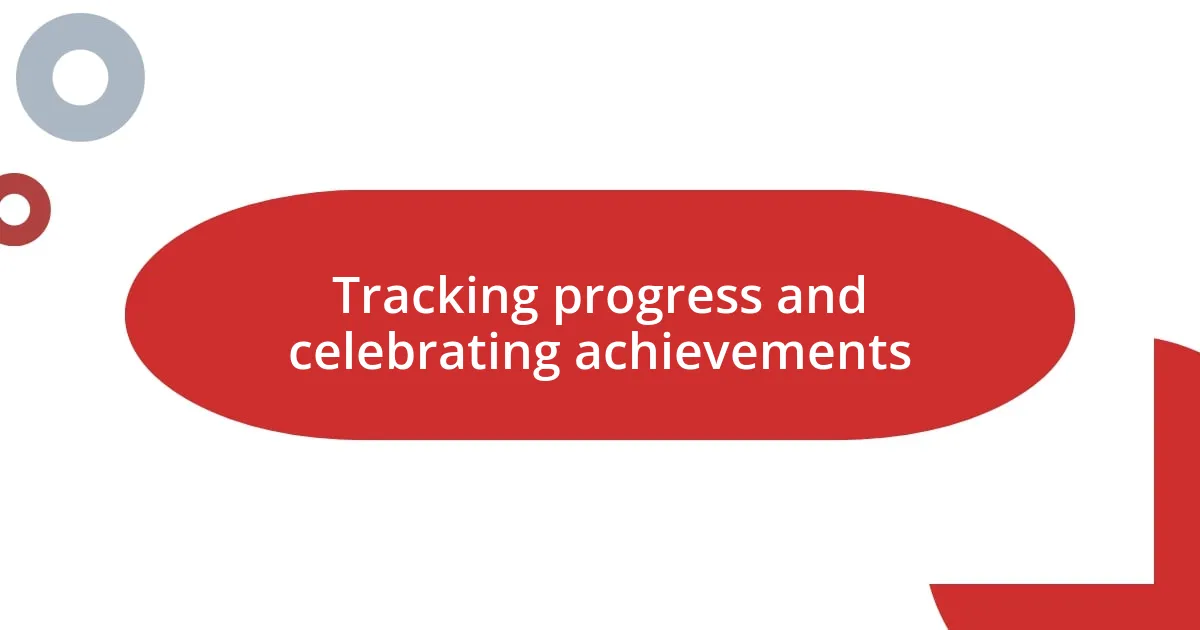
Tracking progress and celebrating achievements
Tracking my progress towards a zero-waste lifestyle has been both enlightening and rewarding. I created a simple journal to document my journey, including the small wins like switching to reusable bags or saying no to single-use plastics. Every time I flip through the pages and see how far I’ve come, I feel a rush of pride. Have you ever taken a moment to reflect on your achievements? It’s a reminder that every effort counts, no matter how small.
Celebrating achievements, no matter how minor, has become a feast of personal joy for me. I developed a ritual where I treat myself to a zero-waste snack after a successful week of waste reduction. It’s a delightful way to acknowledge my hard work, while reminding myself of the zero-waste values I cherish. Have you considered how you reward your milestones? This simple act of celebration keeps me motivated and reinforces my commitment to the cause.
I also found that sharing my progress with friends and family amplifies the joy. I once invited a few friends over to showcase my zero-waste swaps, like homemade cleaning products and beeswax wraps. Seeing their surprise and interest made me feel like an advocate for change! It’s fascinating how discussing my journey not only encourages my growth but inspires those around me. Have you ever thought about how sharing can amplify your experience? Engaging with others creates a ripple effect that fosters a bigger conversation about sustainability.
